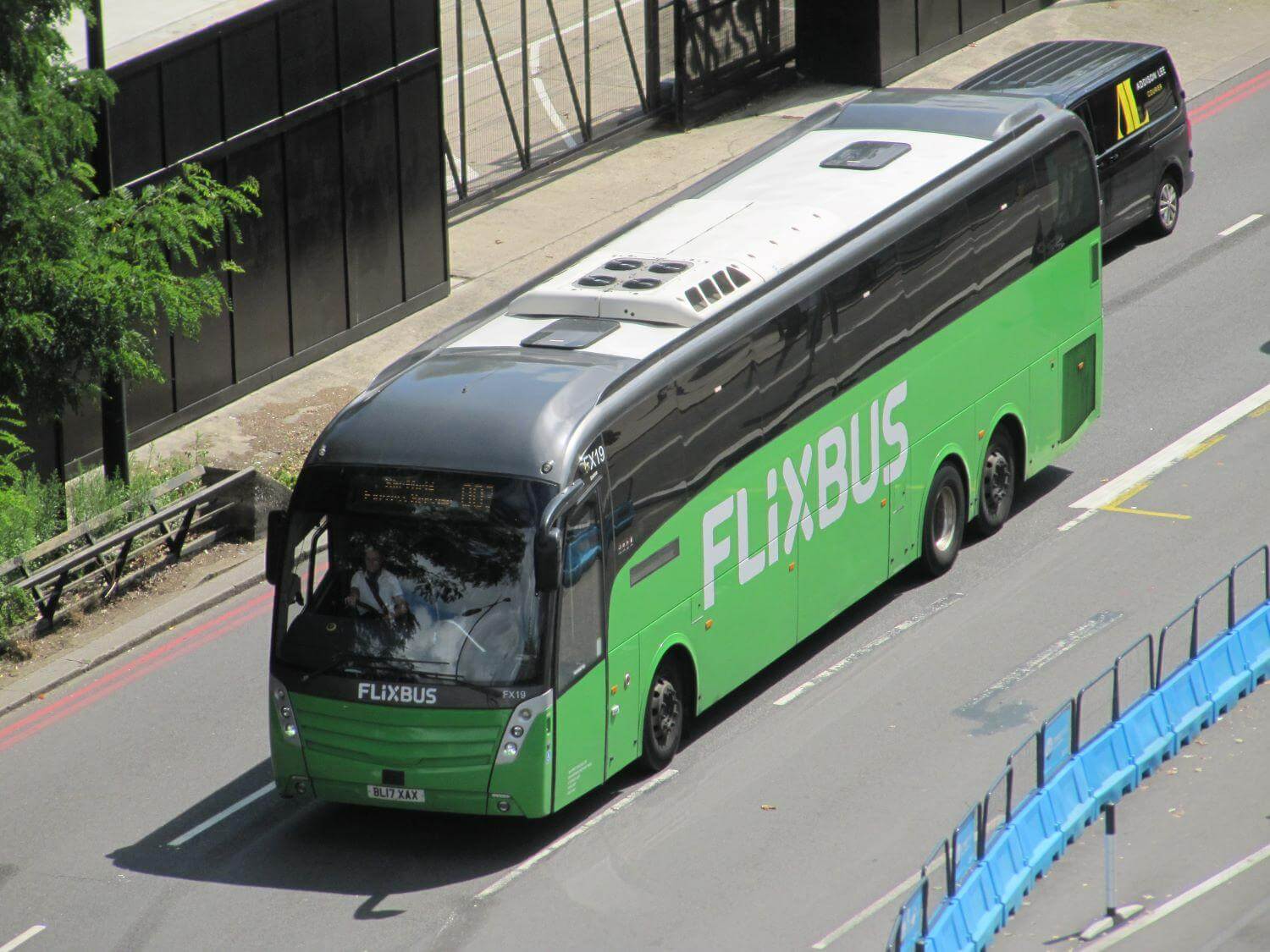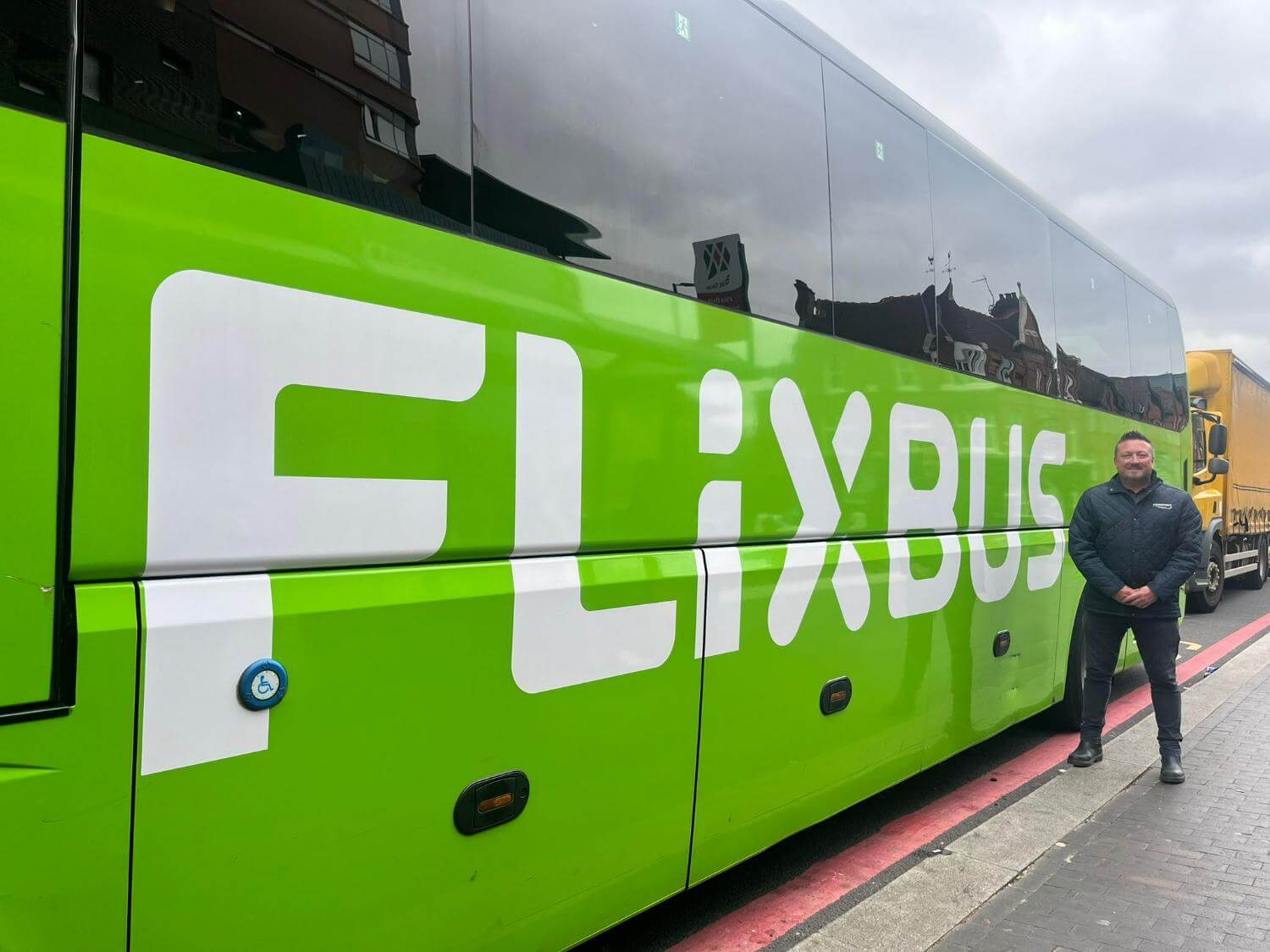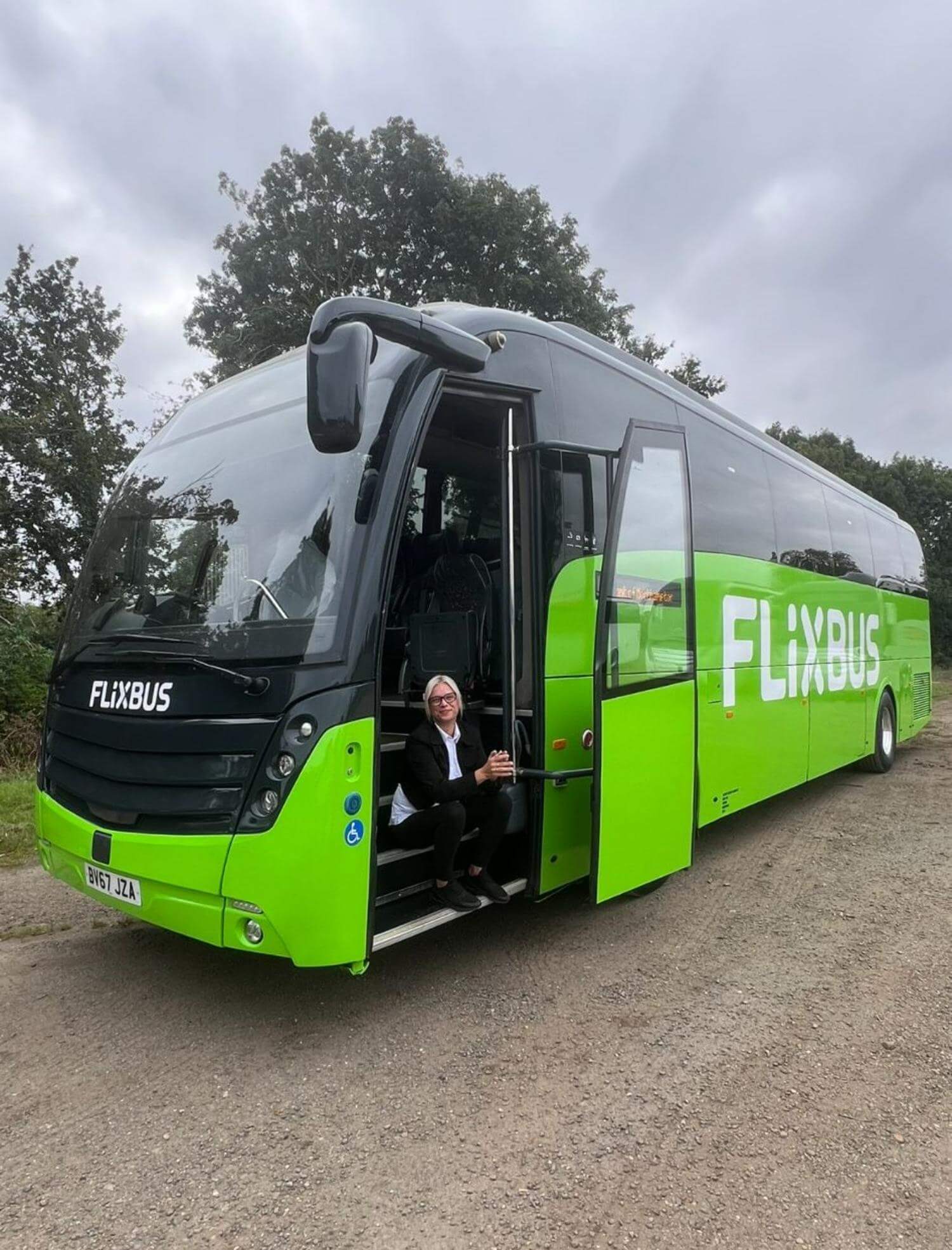FlixBus UK: Growth to continue with close eye on quality – routeone

FlixBus UK has made no secret of its ambition to become the largest provider of scheduled coach services in the country.
Despite beginning to sell for UK journeys as recently as July 2020 — in the depths of the COVID-19 pandemic — the travel tech company has grown rapidly to serve more than 70 destinations nationwide. Its network has doubled in size this year and the business says it wants to do the same again in 2025.
It has recently boasted of its five millionth customer in the UK, 12 months after the two-million mark was breached in just three years.
It has just revealed its latest two partner operators which will further the rapid expansion: Prospect Coaches of Stourbridge and Chalfont Coaches of Cogenhoe started operating services on behalf of FlixBus, whose parent company, Flix, launched in 2013 and now has arms in 45 countries.
There are definitely times we could have grown faster if we had chosen to – Andreas Schorling
Andreas Schorling, MD of FlixBus UK, says of the additional partnerships: “I believe this sends a very clear signal to the market. We have ambitious growth targets and we continue delivering towards them.
“I would also push that we’re bringing optimism and energy to the coach industry… I think these two operators joining the network is a further testament of that strategy and direction.”
Prospect Coaches builds on express boom
The success of FlixBus reflects the general strength of scheduled services in the UK at the moment. Nathan Hadley, MD of Prospect, whose business has been carrying out scheduled services since 2021, says: “Express service is strong. We’ve seen that from the numbers we carried on our other contracts.
“We’re not seeing coaches driving up and down the motorway empty. I think, with the cost of living, it’s affordable, and it’s sustainable travel.”
Prospect, which will run two FlixBus-branded coaches initially — between London and Birmingham — will expand the partnership with an additional eight next spring for as-yet unannounced routes.

Nathan says that no major operational changes were necessary, the business having just brought to an end scheduled services under a previous contract. He adds that the phase-two services will require additional investment in vehicles and a new premises.
However, that move will be made with confidence. “Over four years, we’ve gone from going into the pandemic with a £3.5 million turnover to this year £6.8 million. In the last 12 months, we’ve put a million onto the turnover and maintained profit margins.”
Witnessing that commercial success was Roslynd Hadley, who had 50 years with the business, ending as MD, before her sad passing this summer.
Nathan adds: “We want to be the best. We’re constantly striving to improve quality, our standards, whether that be the vehicles, the drivers, the presentation. We built it just by being true to our customers and trying to provide a very good service to them and I’d like to think that’s what attracted Andreas and the wider FlixBus team.”
Time is right for Chalfont Coaches
Chalfont is using four vehicles for FlixBus at the outset and has agreed expansion up to 12 vehicles next year. The first services are running to Leicester, Manchester and Newcastle from London.
“It is a phenomenal opportunity,” says Andreas of the new partnership. “We’re very excited to partner with Vera [Shears, Director] and the whole Chalfont team. We’ve been building this relationship over several years and we’re now at a time when we think it’s right to start working together.”
Vera, whose family-run business has undertaken express services for 30 years, says: “We’ve been watching the FlixBus network as it’s grown and we feel like, this time, we can meet the demand in a much more simplistic and efficient way than we have previously.


“For us, it’s an exciting new venture and something that I needed. We feel this is the place we should be, where we can grow together.”
Chalfont reports a successful recruitment campaign for new drivers, which was run by Operations Manager Jack Loomes. Vera — who herself took the wheel partway for the first FlixBus service out of choice rather than necessity — believes the FlixBus mention in the adverts, as well as the new opportunity for drivers in the area, helped in attracting 25 applicants within the first two days.
Quality trumps short-term growth
The addition of the latest two partners adds to expansions agreed this year with operators such as McGill’s, Newport Transport, Belle Vue, Rowgate Group and Cymru Coaches. The link-up with Newport Transport led to a trial of a battery-electric coach from Newport to London. This was followed up by a similar zero-emission pilot with Whippet on the Cambridge to London line.
The growth of the network has been impressive, but Andreas is keen to stress it has not been without a very close eye on quality. FlixBus partnerships come after what is often years of discussions.
Whenever operators are doing well, it’s a good thing. We want to work with operators which are profitable, quality-obsessed – Andreas Schorling
Andreas explains: “For us, it’s quite normal that we build these relations over a long time because we have a long outlook on the time we believe we’re going to work together.
“We’ve been very intentional with the operators that we’re bringing on board because, at the end of the day, everything comes down to quality and, if we’re not delivering the quality, we don’t have a right to exist and we need the best operators to do that.
“That’s why we’ve been happy to dedicate two years to a relationship to see that it is the right partner for us. What we like to see is a multigenerational company that is focusing on customer experience, to have returning customers, delivering quality.”
The growth has come despite challenges. The buoyancy of the coach industry in general could easily have worked against FlixBus, with operators tending to have the opportunity to find work easily in other fields.
However, Andreas is pleased for the sector, saying: “Whenever operators are doing well, it’s a good thing. We want to work with operators which are profitable, quality-obsessed.
“[The strong market] makes us sharpen our own proposition because operators have other opportunities and we can provide the best possible option for them.” The driver shortage since the pandemic, which Andreas feels has now subsided slightly, has been another potential obstacle.
“There are definitely times we could have grown faster if we had chosen to,” says Andreas. “Equally, we are not going to compromise on quality. Quality and safety are very closely linked. We can never forget that we are transporting millions of passengers in vehicles that weigh tens of tonnes, so we just need to ensure that that is in place.
“We have an outlook that is for decades. The purpose of building FlixBus is to build something that stands the test of time. When you have that time horizon, it’s quite an easy choice to prioritise long-term quality over short-term growth.
“Equally, we are still doubling the size of the network year after year and many businesses would love to be able to show similar numbers… but whenever we have to do the trade-off between quality and speed of growth then we go for quality because that is going to be the winning recipe over the decades to come.”
Related
Why investing in women is a vital next step for…
Get Nadine White's Race Report newsletter for a fresh perspective on the week's newsGet our free newsletter from The Independent's Race CorrespondentGet our fre
Business secretary signals major shift on electric car policy to…
In a determined effort to retain Nissan’s manufacturing presence in Britain, Business Secretary Jonathan Reynolds has vowed to implement “substantial c
Joint Statement: Business Secretary and Fujitsu Services Ltd
Business and Trade Secretary Jonathan Reynolds today (Friday 7 March) met chiefs for Fujitsu in Tokyo to begin talks over the cost of redress for victims of th
UK foreign secretary backs multilateral defence funding for Europe
UK foreign secretary David Lammy has said that a new multilateral fund will be needed to secure Europe’s defence as he confirmed that Britain is “open to”













